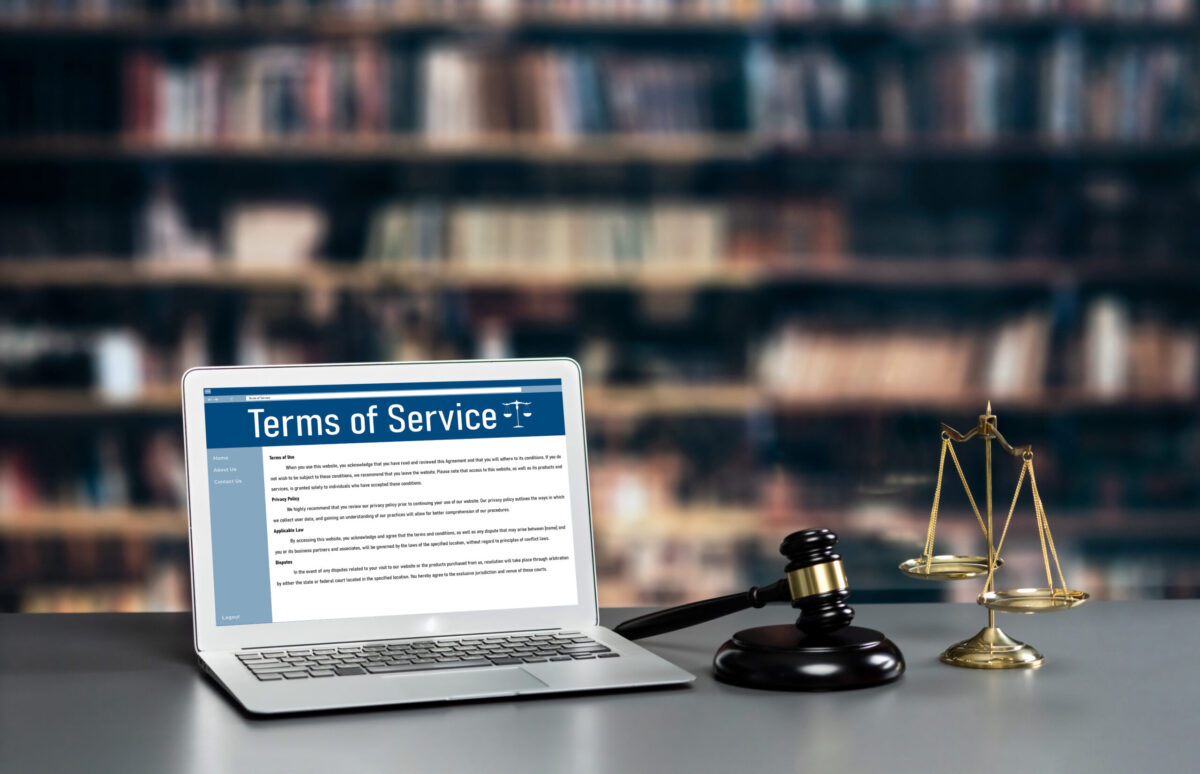Your website is often a potential client’s first impression of your firm and their first step toward hiring you. But if it’s not compliant or secure, it can lead to regulatory risk, ethical issues, and lost trust. Solo attorneys and small firms can’t afford to overlook the basics like site speed, accessibility, or a current privacy policy. These aren’t just technical concerns; they’re potential liabilities.
Here’s why your website needs to meet both compliance and security standards and how we can help you get there.
Compliance Isn’t Optional
Attorneys are trained to spot risk, but it’s easy to overlook digital vulnerabilities, especially if your website was built years ago and hasn’t been reviewed since. Yet many legal requirements and professional ethics standards now extend to your online presence.
Let’s take a closer look at where firms commonly fall out of compliance:
- ADA Accessibility
Web accessibility isn’t just a moral imperative; it’s increasingly a legal one. The Americans with Disabilities Act (ADA) has been interpreted by many courts to apply to business websites, including law firms. If your website isn’t usable by people with visual, auditory, or cognitive impairments, you could face lawsuits, demand letters, or bar complaints.
For example, if a potential client with a screen reader can’t fill out your intake form or navigate your menu, you’re not just missing a lead, you’re risking a violation.
- Privacy Laws: GDPR, CCPA, HIPAA
Even if you’re not in Europe or California, your site may still collect personal data (think contact forms, chat pop-ups, newsletter signups). That means privacy compliance isn’t optional. Emerging state laws like the Colorado Privacy Act (CPA) and Virginia Consumer Data Protection Act (VCDPA) are expanding the rules around data collection, user consent, and disclosure.
If you handle sensitive health or financial information, HIPAA may also apply. A clear, up-to-date privacy policy and terms of use are essential, and so is the secure handling of any user data collected.
- Bar Association Guidelines
Every state bar has rules around attorney advertising. These apply to your website, too. From avoiding misleading language to including appropriate disclaimers, your content must comply with ethical standards. A non-compliant bio, testimonial, or blog post could put your license at risk.
- Data Retention and Confidentiality
Legal websites often offer file uploads or client portals for secure document sharing. Are those tools secure? Are you storing files in compliance with your jurisdiction’s data retention rules? If not, you’re leaving yourself open to serious ethical and malpractice exposure.
Security Is Your First Line of Defense
Your clients trust you to protect their most sensitive information. That trust shouldn’t stop at your inbox. Cybercriminals actively target law firms, particularly smaller ones, as they often lack the time and technical support to stay up-to-date with security best practices.
Here’s what every law firm website should have:
- SSL Certificate – This ensures that any data transmitted through your website is encrypted. Without SSL, your site may even be flagged as “Not Secure” by browsers, hardly a reassuring look for potential clients.
- Secure Hosting – Low-cost or shared hosting solutions can expose your firm to unnecessary risks. Secure hosting offers firewalls, malware protection, and dedicated support—critical layers of defense in a profession where confidentiality is everything.
- Data Encryption – It’s not just about storing data; it’s about protecting it. All personal information submitted through your site should be encrypted both in transit and at rest.
- Regular Vulnerability Scans – Cybersecurity isn’t one-and-done. Threats evolve, which means your site should be regularly scanned for vulnerabilities and patched before attackers find them.
- Staff Access Protocols – Who has access to your website’s backend? If you’re not sure, that’s a problem. Role-based access and strong password policies can prevent accidental errors or malicious breaches.
The Risks Are Real and Growing
Still thinking this won’t happen to your firm?
Here’s what’s at stake:
- Reputation loss if your site is hacked or someone reports you for ADA or bar rule violations
- Legal liability under state, federal, or international privacy laws
- Fines and sanctions from regulators or bar associations
- Lost clients due to broken trust or poor user experience
Recent studies found that 29% of solo and small firm respondents experienced a security breach, most of which were due to weak website and email practices. A non-compliant or insecure website doesn’t just put your firm at risk; it undermines the trust that clients place in you.
Expert Help to Keep Your Website Compliant and Secure
Let’s face it: website compliance and security aren’t in your job description. You didn’t go to law school to debug code, track privacy regulations, or fend off phishing attempts. That’s where we come in.
Our team works with law firms across the U.S. to ensure their websites are updated, compliant, and professionally maintained. We specialize in:
- Website design and ongoing maintenance
- ADA audits and accessibility upgrades
- Terms of use and privacy policy updates
- Legal marketing and ethical content reviews
- Virtual paralegal support for client communication and case intake
We understand legal workflows, confidentiality, and bar rules, and we speak your language. Whether you need a complete website overhaul or just a security tune-up, we’ll help you build a digital presence that reflects the professionalism of your practice.
Don’t Let Website Issues Become a Legal Liability
The most dangerous assumption is that your website is “probably fine.” In reality, many outdated or DIY-built legal sites fall short of current compliance and security standards. A secure, ethical, and accessible website isn’t just good business; it’s part of good lawyering. Let’s make sure your site protects your clients, your practice, and your peace of mind, book a consultation to review your website’s compliance and security.
